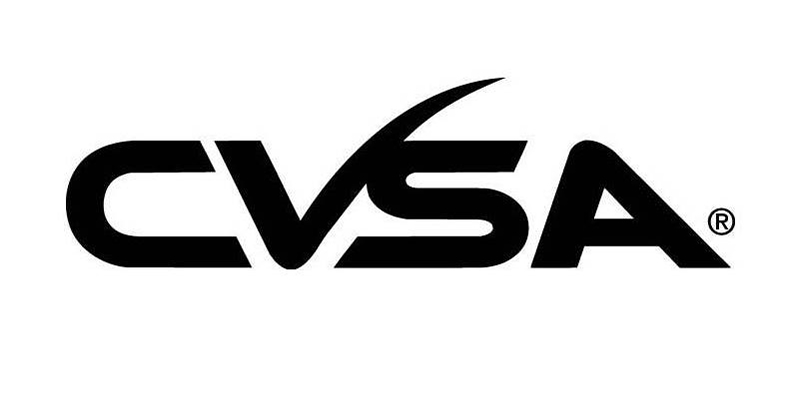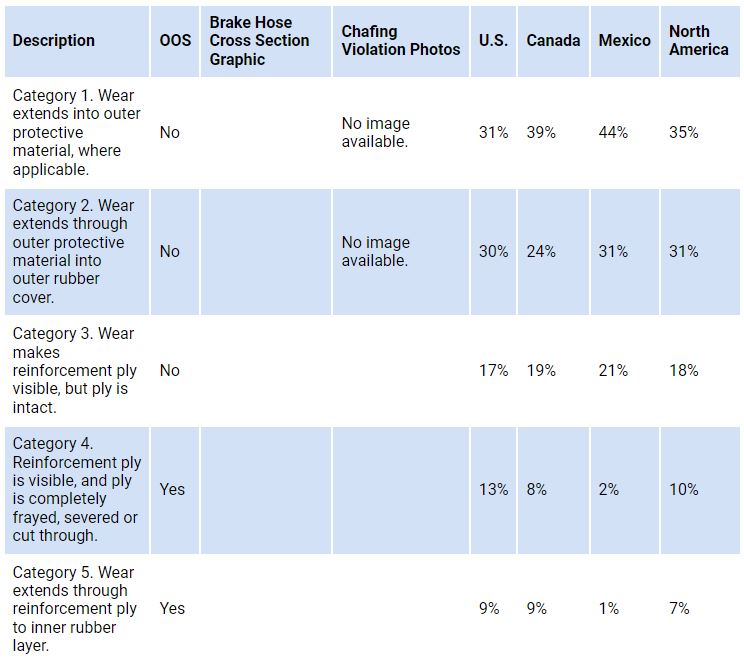Home » Trailer Industry » Trailer Industry News » 2021 Brake Safety Week Results

CVSA Releases 2021 Brake Safety Week Results
(Trailer Technician) – Commercial motor vehicle inspectors in Canada, Mexico and the U.S. inspected 35,764 commercial motor vehicles during this year’s Brake Safety Week, a seven-day inspection and enforcement initiative aimed at inspecting commercial motor vehicles roadside and identifying and removing any commercial motor vehicles with dangerous brake-related issues from our roadways. Twelve percent of the vehicles inspected were placed out of service due to critical brake-related inspection item conditions.
Every year, for Brake Safety Week, law enforcement jurisdictions with the Commercial Vehicle Safety Alliance (CVSA) conduct commercial motor vehicle and driver inspections at fixed weigh stations, temporary pop-up inspection sites and during roving roadway patrols, paying special attention to brake components and systems. Participating jurisdictions capture and report data on inspections and the special focus area for that year. This year, the focus was on brake hose chafing violations.
CVSA devotes an enforcement initiative to brakes because of the importance of properly maintained and functioning brakes on commercial motor vehicles, including tractor trailers of all types, cargo tankers, vans, flatbeds, motorcoaches, straight trucks and specialty vehicles, such as cranes or automobile carriers, etc. “Properly functioning brakes may mean the difference between a catastrophic collision or the ability to avoid a crash,” said CVSA President Capt. John Broers with the South Dakota Highway Patrol.
Brake-related violations accounted for eight out of the top 20 vehicle violations in 2020, according to the U.S. Federal Motor Carrier Safety Administration’s data. And brake system and brake adjustment violations accounted for more out-of-service vehicle conditions than any other vehicle violation during CVSA’s three-day International Roadcheck inspection and enforcement initiative in May.
Fifty Canadian and U.S. jurisdictions, and Mexico’s National Guard and Ministry of Communications and Transportation participated in this year’s Brake Safety Week, which is a voluntary commercial motor vehicle safety initiative. In Canada, 1,903 commercial motor vehicles were inspected. The brake-related out-of-service rate was 15.4%. The out-of-service rate related to brakes in the U.S. was 13.5% out of the 28,694 commercial motor vehicles inspected. And in Mexico, 5,167 inspections were conducted with a brake-specific out-of-service rate of 2.6%.
Combined, for a North American total, 35,764 commercial motor vehicles were inspected, Aug. 22-28, for Brake Safety Week. Twelve percent of those vehicles were restricted from travel because inspectors found brake-related critical vehicle inspection item conditions and placed those vehicles out of service, using CVSA’s North American Standard Out-of-Service Criteria.
That also means that 88% of the commercial motor vehicles inspected throughout North America during Brake Safety Week did not have brake-related critical vehicle inspection item violations. Vehicles that did not have any vehicle and driver out-of-service conditions during a Level I or Level V Inspection may have received a CVSA decal, which is a visual indicator to inspectors that the vehicle was recently inspected (valid for three months) and had no critical vehicle inspection item violations.
In addition, during Brake Safety Week, inspectors in Canada, Mexico and the U.S. recorded 5,667 brake hose chafing violations, which are a common brake-related violation, whether out-of-service or not. Inspectors reported brake hose chafing violations in five different categories, illustrating levels of chafing severity, including two which are out-of-service conditions, and submitted that data to CVSA.
Table 1: Percentage of brake hose chafing violations by category and country

Table 2: Number of brake hose chafing violations by category and country

Brake Safety Week is part of CVSA’s Operation Airbrake program, in partnership with the U.S. Federal Motor Carrier Safety Administration, the Canadian Council of Motor Transport Administrators, and Mexico’s National Guard and Ministry of Communications and Transportation. Operation Airbrake is a comprehensive program dedicated to improving commercial motor vehicle brake safety throughout North America. The goal is to reduce the number of crashes caused by faulty braking systems on commercial motor vehicles by conducting roadside inspections and educating drivers, mechanics, owner-operators and others on the importance of proper brake inspection, maintenance and operation.
